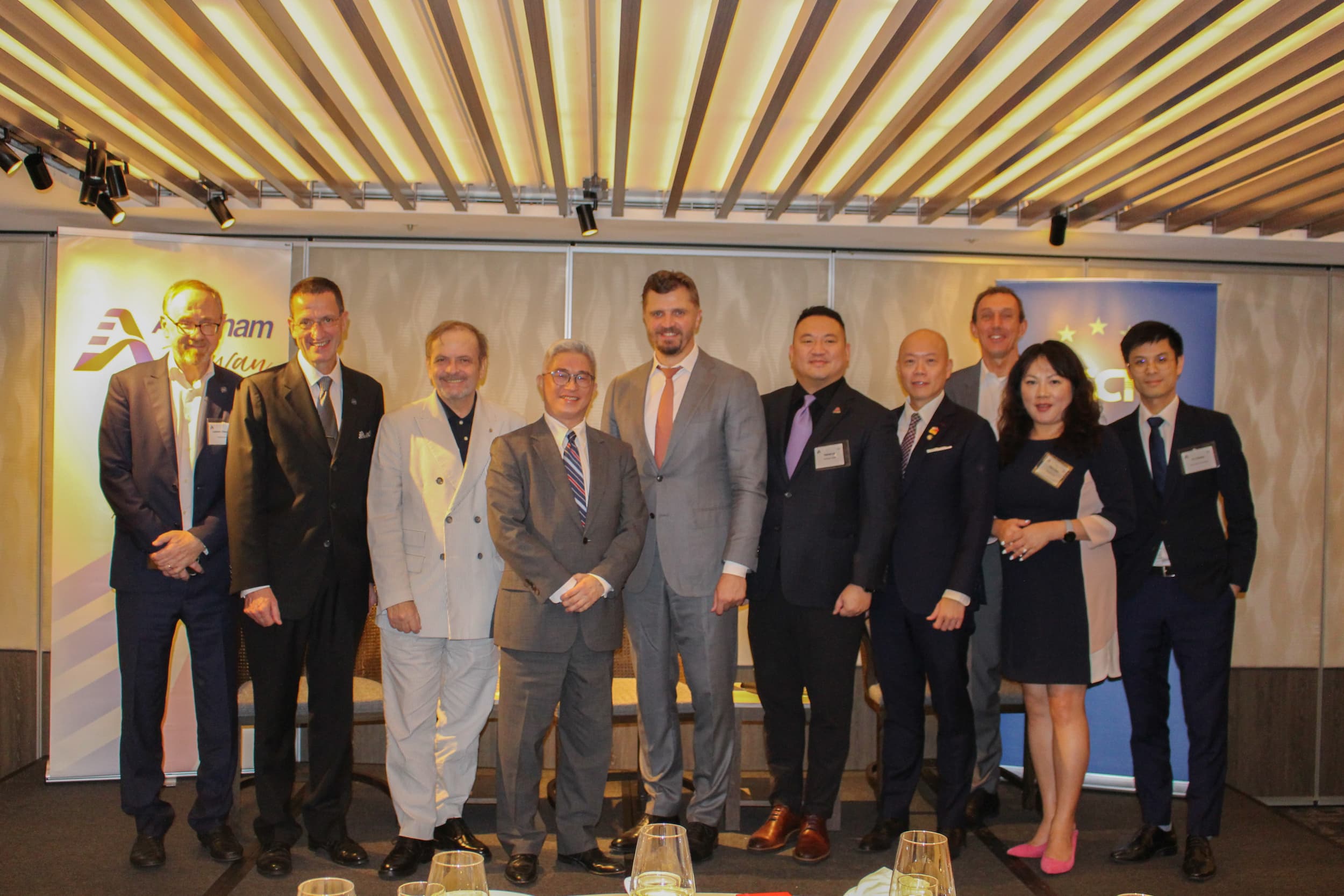Analysing national security challenges

The ECCT was the joint host of a Special Lunch with AmCham on the topic of national security challenges. The event featured a speech by Giedrimas Jeglinskas, Non-resident Senior Fellow of The Atlantic Council, and a panel discussion in which the speaker was joined by Hsu Szu-chien, Deputy Secretary-General of National Security Council (NSC).
In his speech, Giedrimas Jeglinskas gave his analysis of some of the major global security challenges, which he described as making the world more volatile and dangerous. He began with an analysis of Russia’s war on Ukraine. Ukraine’s defence and resilience has been impressive while Russia’s performance has shown that it is not enough to have superior hardware and firepower. Nevertheless, the fact that Putin felt confident enough to proceed with the invasion shows that the West’s deterrence was insufficient. The invasion has global implications because it poses a direct challenge to the international rules-based order. If Russia is allowed to prevail it would set a dangerous precedent for the rest of the world that stronger powers can act with impunity against smaller and weaker ones. Russia is already acting akin to a 19th century colonial power in Africa and elsewhere and would be further emboldened if it succeeded in Ukraine.
Western support of Ukraine is crucial. It is notable that the West was at first reluctant to supply weapons but has since dropped all such objections. However, keeping up the fight requires a continued supply of weapons systems and munitions, which is a challenge given so little investment in capacity over the past few decades. There is also a danger of fatigue or a waning of support for Ukraine in the West.
Building resilience is about more than weapons and soldiers. It requires a whole of society approach to put everyone on a war footing. The speaker noted how Ukraine was relatively quickly able to shift to providing public services via cloud computing. Thanks to strong and effective leadership, Ukraine has managed to respond quickly to Russian attacks, such as repairing power stations and essential infrastructure without delay.
As to how the West should work to defend the international rules-based order, Jeglinskas offered the following observations: 1) Strength is the only language autocrats understand. That means that Western powers need to step up their investments both in military hardware and overall resilience. It would be a nightmare if the US and its allies were to lose their military supremacy; 2) Preserving the current world order is essential. Western powers and their allies need to work together to keep the system strong. A multipolar world could be unstable and especially dangerous to small powers; 3) Democratic countries must band together; 4) Strong political leadership is needed to preserve the current order. Without values-based leadership, we will be in trouble.
In his remarks in the Q&A session, Hsu Szu-chien agreed with the speaker that building resilience requires a whole of society approach and strong leadership and added that it should cover the aspects of AI, biochemicals, communications, defence and energy. He added that more investment is needed to maintain the current global order, including in weapons, advanced technology and soft power.
